As part of the series of activities of the symposium "Economics and Business: Agendas for the Uncertain World", on April 16, 2021, the Seminar JST April 2021 was organized by the Journal of Asian Business and Economic Studies (JABES) - University of Economics Ho Chi Minh City (UEH). At the event, domestic and international researchers and scientists were listening to guest speaker Professor Andrew presented and discussed the topic “Are there too many farms in the world? Transaction costs in the labor market, machine capacity and optimal farm size”. More specifically, at this seminar, Professor Andrew also had special advice and sharing for lecturers and researchers on some skills and experiences in international publication.
In order to guide relevant and useful research topics in the context of global uncertainty, the Journal of Asian Business and Economic Studies (JABES) organized a monthly series of international scientific seminars (JABES Seminar Talks - JST) related to economics and business. On the morning of April 16, 2021, the JST 2021 seminar was held by JABES with the presentation of the guest speaker Professor Andrew D. Foster, with the participation of the community of domestic and international researchers and scientists.
Andrew D. Foster is a professor in the Department of Economics, Services, Policy and Medical Experimentation, Director of the Research Institute of Social Sciences at Brown University (USA), and Editor-in-Chief of the Journal of Development Economics (ABDC: A*). Professor Andrew also serves in the Steering Committee of the National Bureau of Economic Research (NBER), the Council of the Bureau of Economic and Development Research and Analysis, and is General Editor of the Journal of Development Economics. He received a BA from Princeton University (USA) and a Ph.D. from the University of California (USA).
As an experimental microeconomist specializing in population, development and environmental economics, Professor is particularly interested in sources of long-term economic and social mobility in low-income rural areas. He also studies issues such as fertility, health, household, human capital, institutions, labor economics, and marriage.
Professor Andrew presented the results of the research “Are there too many farms around the world? Transaction costs in the labor market, machine capacity and optimal farm size” from six-year research data (2009-2014) in India - a developing country with many similarities in the agricultural context compared to Vietnam. This is a study published in 2017 and revised in 2021 by Professor and his colleagues.
From the research results, Professor Andrew showed a significant difference in agricultural productivity between countries. In general, in the comparison between countries, the productivity of large farms is higher than that of small farms, and there is a difference in agricultural productivity between rich and developing countries: In the wealthy group, farm productivity increases with scale; meanwhile, in the group of developing countries, farm productivity decreases with scale. Professor Andrew explained the U-shaped relationship between productivity and farm size by combining transaction costs in the labor market and economic efficiency according to scale when applying technology and machines into agricultural production. To be more specific:
Firstly, there is a fixed transaction cost in the labor wage,in particular, the average hourly wage for a worker working 6 hours/day will be higher than the average hourly wage for a worker working 8 hours/day. Small-scale farms will achieve the best results by optimizing the productivity of family members and do not need to hire outside labor. Productivity decreases as farm size increases, at this time, hiring more labor leads to a high proportion of fixed transaction costs hiring labor in total labor costs; when a sufficiently large scale is reached, optimal productivity is achieved due to the low proportion of fixed transaction for labor hiring costs in total labor costs.
Secondly, higher capacity machines do more work per hour, and at the same time, costs are higher (but no more than the rate of increase in capacity). However, large machines are not working at full capacity on small scale farms. As a result, on very small farms that use only household labor (not using machines and very large farms), the use of high capacity machines optimizes productivity according to scale; medium-sized farms (which do not use their full capacity of the machine) are often less cost-effective.
In addition, Professor Andrew also suggested that the expansion of the industrial sector, attracting workers out of the agricultural sector through reducing the number of ownership, increasing the farm size would increase the total agricultural output income per capita in rural areas.
After the presentation of Professor Andrew, researchers and scientists attended the seminar had in-depth statements related to the practice of agricultural productivity in the conditions of Vietnam before moving to Part 2 - Counseling and support for young faculty and researchers.
Facing consulting questions about publishing research in prestigious international journals, Professor Andrew shared sincerely. He also suggested researching old topics based on exploiting new data, figures sets at the macro level to find other interesting and useful findings and contributions. At the same time, Professor Andrew also suggested short research topics, which did not need to rely on a complex structural model to guide and open up problems in the next important topics.
Some photos at the seminar:
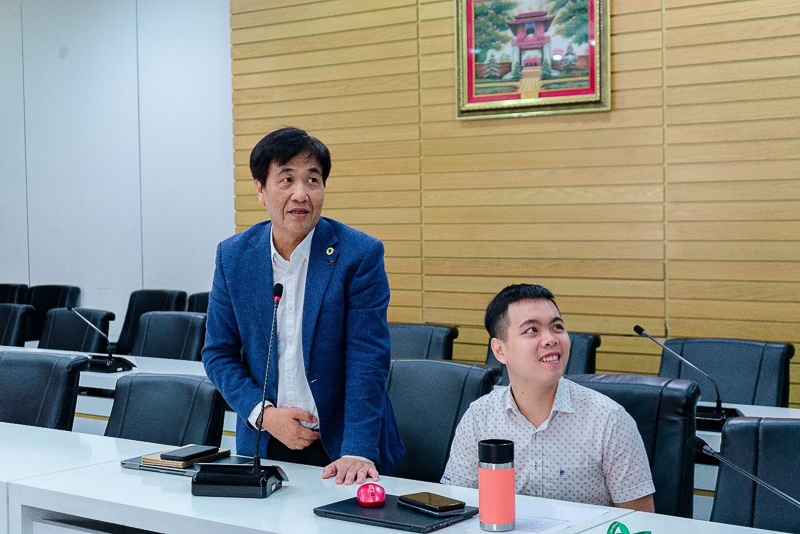
Prof.Dr. Nguyen Trong Hoai - JABES Editor-in-Chief gave his welcome speech and best wishes to Professor Andrew
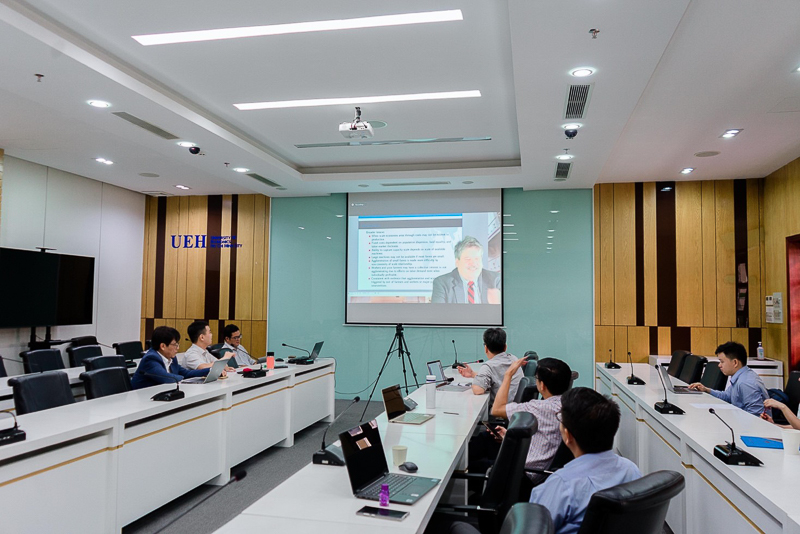
Professor Andrew sent greetings to the researchers and scientists attending the Seminar JST April 2021
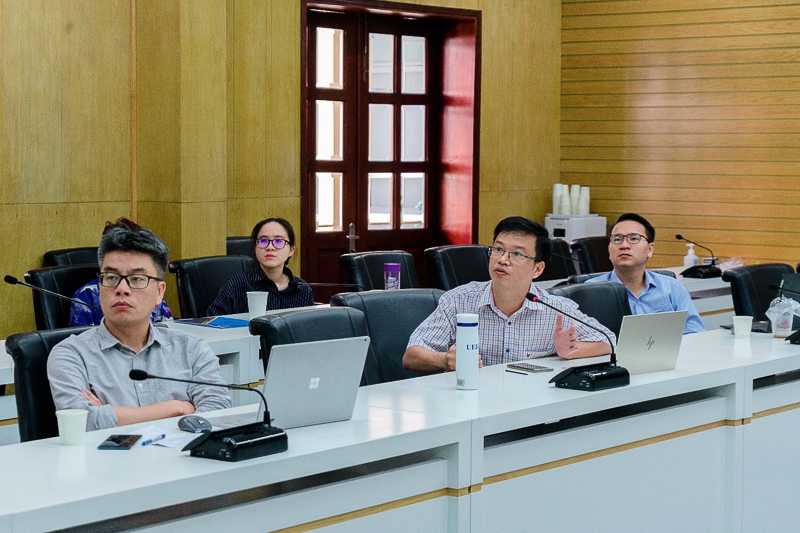
The researchers discussed in-depth and exchanged academically with Professor Andrew
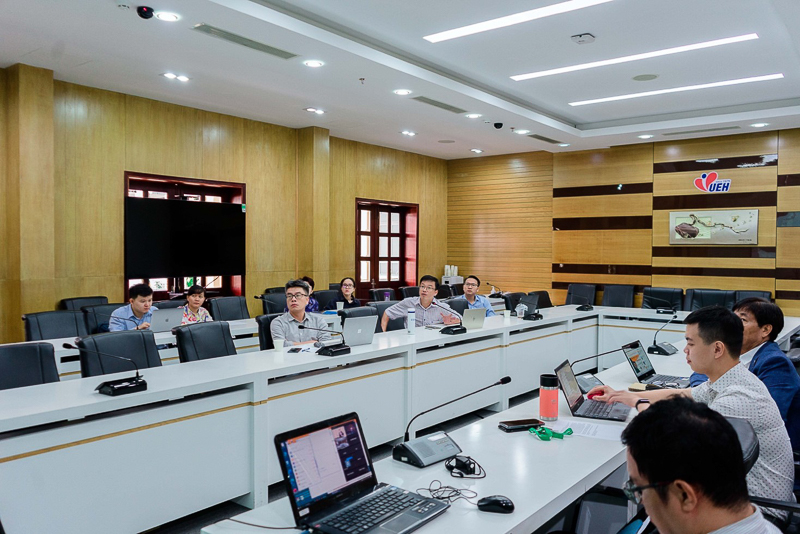
The scene of researchers discussing about the topic of the seminar
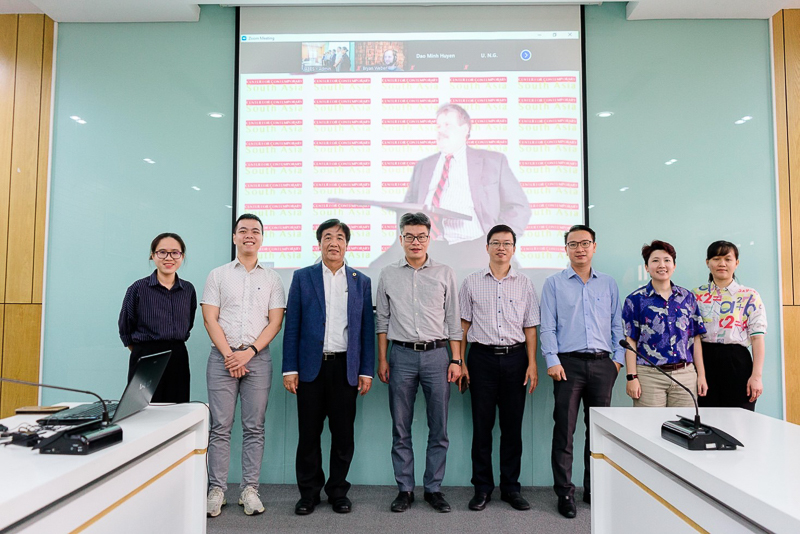
The Organizing Committee and researchers, scientists took photos with Professor Andrew
Additional information:
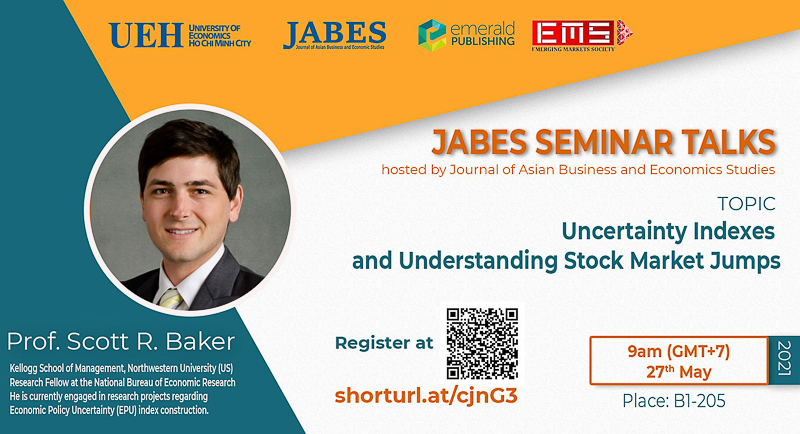
All new information related to the series of seminars of the symposium "Economics and Business: Agendas for the Uncertain World" will be continuously updated.






